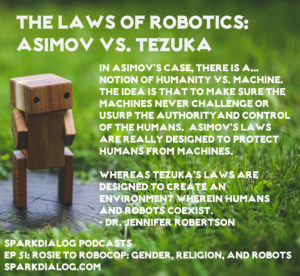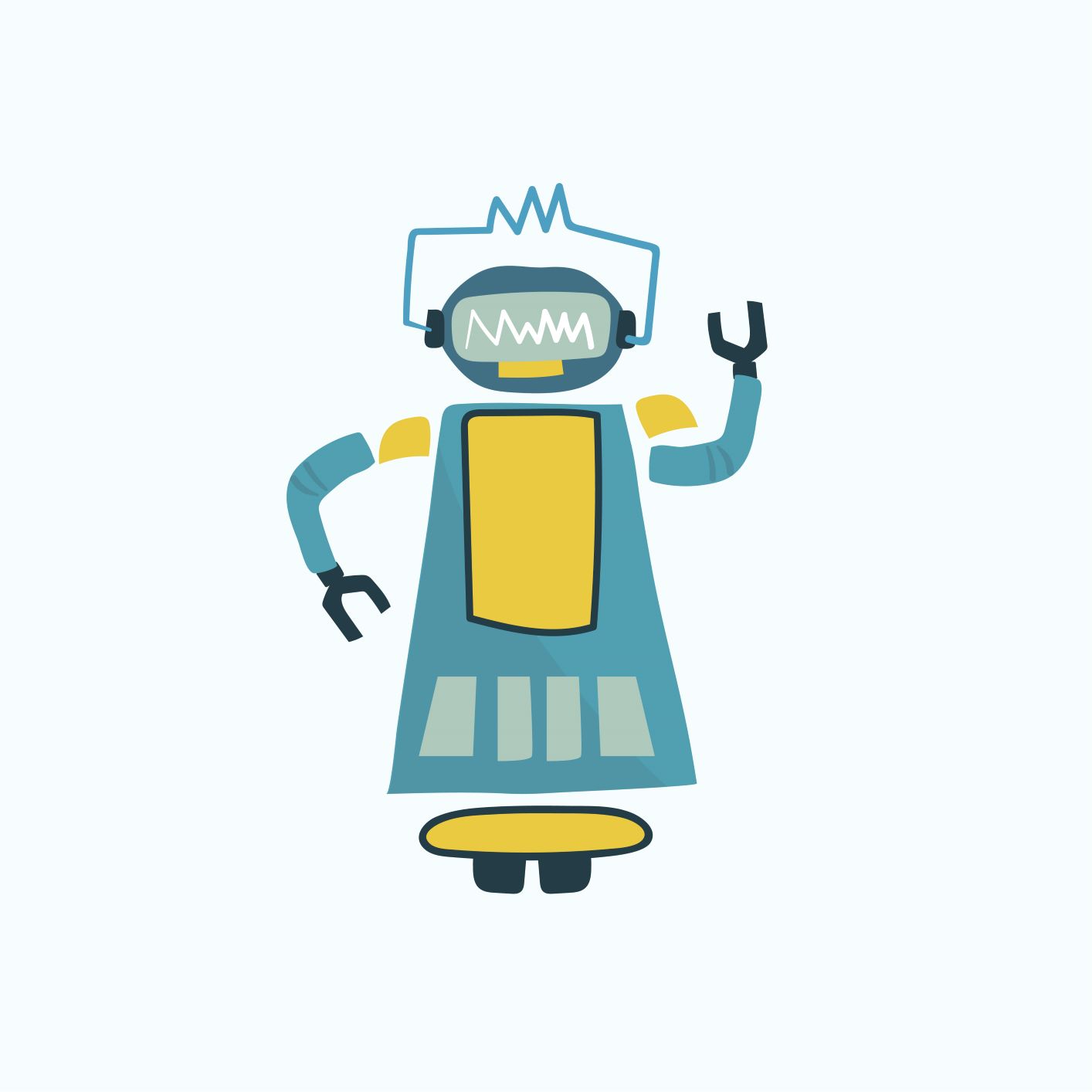Podcast: Play in new window | Download
Subscribe: Apple Podcasts | RSS | More
It may not seem like it when you glance at your Roomba, but robots are influencing gender roles, family, and even religion. From Rosie to RoboCop, robots and gender have a connection in both science fiction and reality. “Female” robots are often small, with almond shaped eyes  and light colors, while “male” robots are burly, with angular shoulders and jaws. Their jobs are different too. “Female” robots often show up in hospitality and interactions with children or the elderly, while “male” robots are seen in security or military applications. With these pronounced differences, these robots are reinforcing gender stereotyping in society.
and light colors, while “male” robots are burly, with angular shoulders and jaws. Their jobs are different too. “Female” robots often show up in hospitality and interactions with children or the elderly, while “male” robots are seen in security or military applications. With these pronounced differences, these robots are reinforcing gender stereotyping in society.
Beyond gender roles, robots are also showing up in various aspects of our culture. Even religion. Some would consider them “part of the family”. This is especially apparent in Japan, where robots have a much more “human” role within society. Robots have officiated over weddings and have their own funerals. Some robots can even be reincarnated – as long as it’s within their 90 day warranty window.
 Today we talk to Dr. Jennifer Robertson, an expert on robots, particularly robots in Japan. Jennifer is Professor of Anthropology and History of Art at the University of Michigan in Ann Arbor. She has lived for two decades in Japan, and had a chance to see first hand the difference between robots in Japan and robots in the United States. Her latest book is Robo Sapiens Japanicus: Robots, Gender, Family, and the Japanese Nation. We discuss robots and gender, sexism, religion, and culture, and how robots are influencing how we see ourselves as humans.
Today we talk to Dr. Jennifer Robertson, an expert on robots, particularly robots in Japan. Jennifer is Professor of Anthropology and History of Art at the University of Michigan in Ann Arbor. She has lived for two decades in Japan, and had a chance to see first hand the difference between robots in Japan and robots in the United States. Her latest book is Robo Sapiens Japanicus: Robots, Gender, Family, and the Japanese Nation. We discuss robots and gender, sexism, religion, and culture, and how robots are influencing how we see ourselves as humans.
